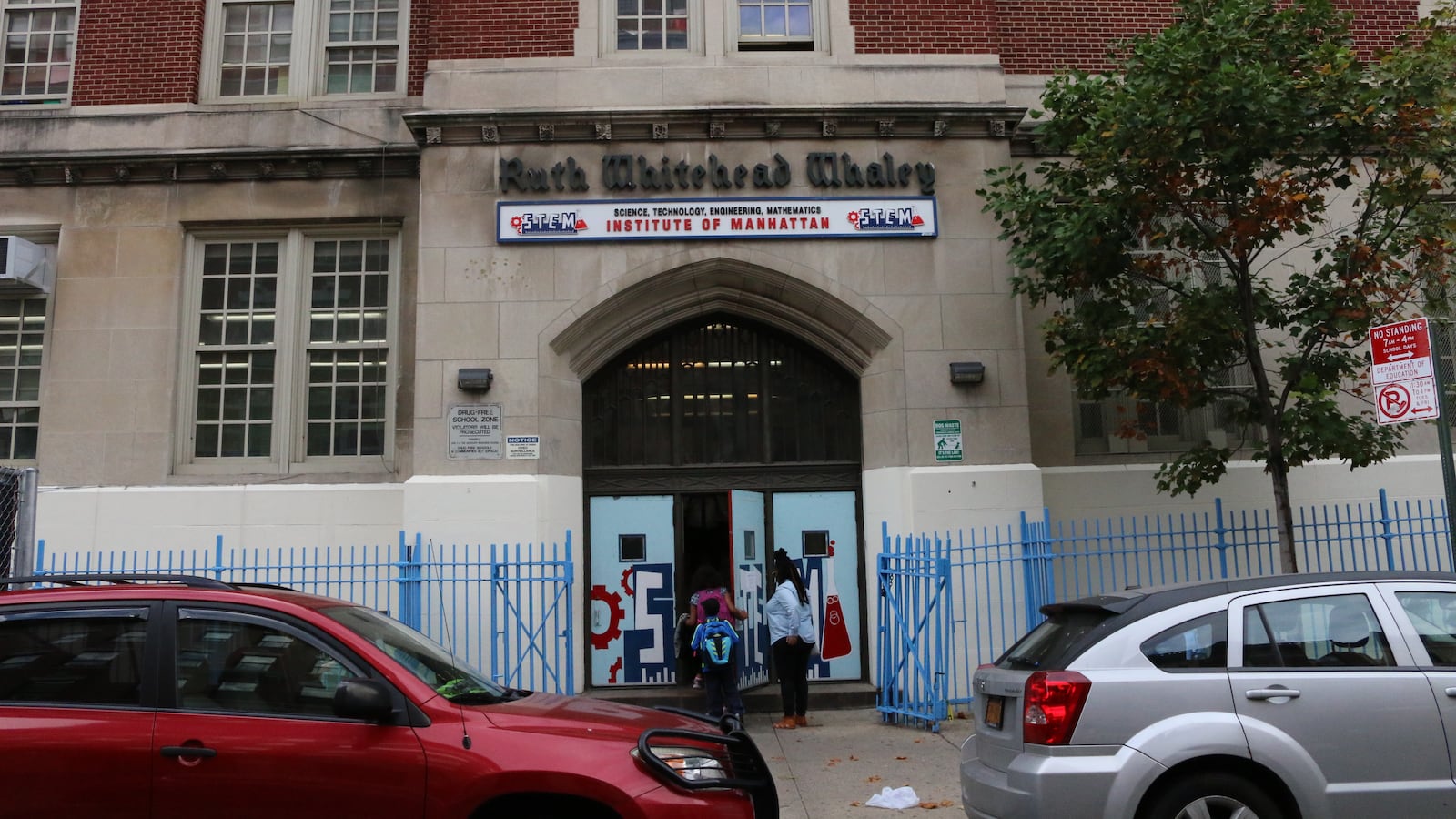Plans to merge an elementary school in Harlem have been put on hold, city Department of Education officials announced Monday.
The decision marks a victory for parents who rallied to keep P.S. 241 STEM Institute of Manhattan in its place, and could signal the start of a broader dialogue about school equity in District 3, which stretches from the Upper West Side to Harlem.
After years of low enrollment and poor test scores, the Department of Education had proposed to merge P.S. 241 with nearby P.S. 76 A. Philip Randolph, and redraw the attendance zone around P.S. 241.
But parents and community leaders complained they were given too little notice of the change. Some also saw the move as symbolic of larger issues in Harlem, where struggling schools face intense competition from charters. P.S. 241, for example, shares its building with two different charter schools.
Meanwhile, the district’s Upper West Side schools are generally packed with students and earn high marks on state tests.
Members of the Community Education Council, which votes on rezoning proposals, hinted recently that they would not support the plan to redraw P.S. 241’s attendance boundaries. Instead, they called for a closer look at declining enrollment in the area and hope to craft a plan to support Harlem schools.
Kim Watkins, who chairs the CEC’s zoning committee, said the city’s decision to drop the proposed merger and rezoning “is a signal that they understand the district needs a far more comprehensive solution.”
“We really need to work to bring together the stakeholders in the community who can brainstorm ways to improve the schools,” she said.
Watkins said the council will kick off those efforts in the new year, and has plans for a formal summit in the spring to “thoughtfully consider” the district’s needs and options.
“The true answer lies in having the time to make sure parents are able to talk about the things that they need,” she said.
Maria Garcia, who has two children at P.S. 241, said she and other parents are already thinking about ways to match the recruitment efforts they see in neighborhood charter schools. For her, the school’s curriculum — which focuses on science, technology, engineering and math — is a unique selling point, especially for black and Hispanic parents who want their children to have access to in-demand jobs.
“All schools are important, but for me STEM is something more emblematic. Families need this,” she said. “What should be done, what can be done, to market this school and raise it up?”

